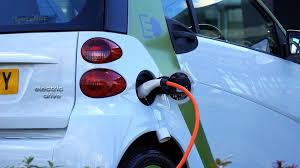Electric vehicles (EVs) are often presented as a silver bullet for reducing carbon emissions, but a closer look at the green transport industry’s supply chains reveals some concerning trends for human rights. A recent investigation by the Guardian points to probable links between EV manufacturers and several industrial cobalt mines in the Democratic Republic of Congo (DRC) where workers face serious exploitation.
From DRC mines to electric vehicles
Cobalt is a key component in the batteries of most EVs, and the DRC is the world leader in cobalt production. Cobalt minors from the DRC have featured heavily in international headlines in recent years due to the notoriously poor working conditions they are subjected to. Reports have revealed how workers, including children, risk their lives with limited protective gear for long hours and little pay.
Following this negative media coverage, some international technology and automobile companies have moved away from small artisanal mines. Instead, they now source the mineral from large-scale industrial mines, which are allegedly a safer option.
How subcontracting enables exploitation
However, in these industrial mines, a common practice is standing in the way of worker protection and corporate accountability: subcontracting. When large mining corporations subcontract other companies to manage on-site workers, they lose oversight and control over the treatment of workers.
After speaking to workers from the industrial mine Tenke Fungurume, where almost 70% of workers are hired through subcontractors, the Guardian reports:
An investigation by the Guardian has found that some workers, often employed through subcontractors, allege they are victims of severe exploitation, including wages as low as 30p [approximately $0.40] an hour, precarious employment with no contracts, and paltry food rations. In a number of mines run by Chinese companies, workers made allegations of discrimination and racism reminiscent of the colonial era.
The Guardian has tracked the cobalt supply chain from TFM and other industrial mines through a number of refiners and battery makers to some of the world’s leading electric car manufacturers, including Tesla, VW, Volvo, Renault and Mercedes-Benz.
Many EV brands have made public commitments to “responsible sourcing” of minerals, and some – notably Tesla – are using innovative ways to achieve this. Nevertheless, the Guardian’s findings suggest how far the sector still has to go to ensure the shift to clean energy is not tainted by claims of workers’ rights abuses.
Towards a human rights-based climate justice movement
Tackling transport pollution has been a key aim of negotiations at COP26, the UN climate change conference currently taking place in Glasgow, Scotland. Experts are pushing for an urgent transition from petrol-powered vehicles to zero-emission equivalents.
As a result, sales of EVs are set to surge from 3.3m in 2021 to 66m in 2040. While some car manufacturers are now using batteries with a lower quantity of cobalt, demand for the mineral is expected to rise by 585% by 2050, according to the World Bank.
Cleaner transportation is crucial for climate justice. However, the electric car industry must adopt more stringent measures to ensure workers at all stages of their supply chains are free from exploitation.
Read our report on how climate change and modern slavery are interlinked.







Freedom United is interested in hearing from our community and welcomes relevant, informed comments, advice, and insights that advance the conversation around our campaigns and advocacy. We value inclusivity and respect within our community. To be approved, your comments should be civil.
Thank you for your great work. Information is so crucial for making choices that are congruent in such a complex world. Together we will end slavery.
Its also important to mention petrol and diesel use cobolt in their processing to remove sulfur from the oil. And its only used once as its burnt in the fuel. At least with batteries it is used over and over and then recycled.
The Big Lie Of Ev Cars
IN THE EARLY BEGINNING OF THE: TIME OF INDUSTRY,
WE HAD THE: HYDRGYN – ENERGIE, IN THE FORM OF GAS.
NOW WE HAVE THE: HYDROGYN, IN THE FORM OF: LIQUID.
THIS IS THE SOLUTION OF ALL. . .